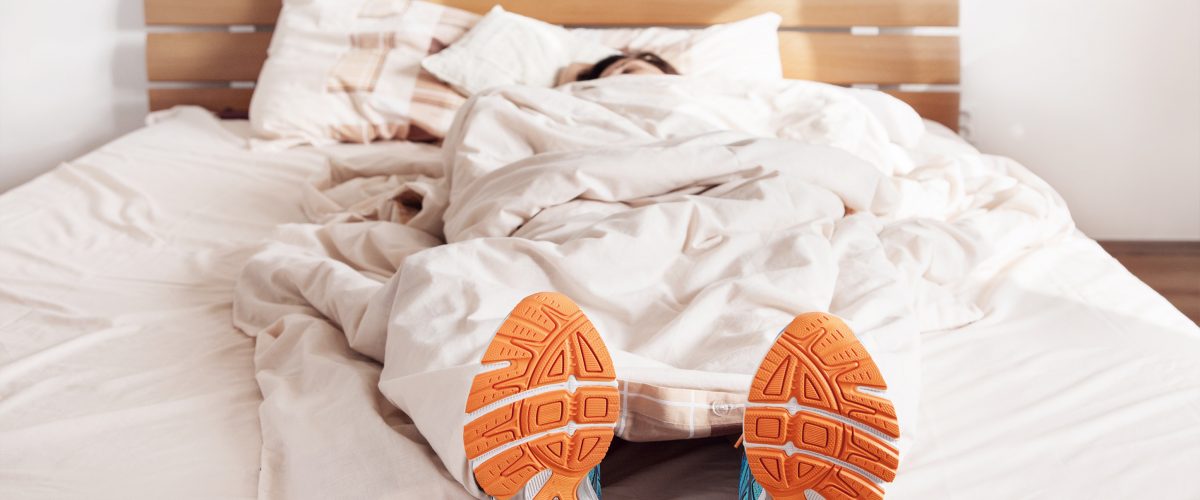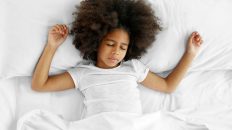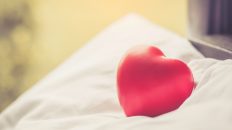By Virginia Gurley, MD, MPH
MB (Marc Braman, MD, MPH):
Our topic this time is “Sleep And Physical Activity”. Doctor Gurley, welcome back and thank you for sharing your expertise with us.
Does general physical activity, or intentional exercise, or it’s timing, affect how well I sleep at night?
VG (Virginia Gurley, MD, MPH):
It does. When you’re physically active, the work your muscles are doing warms your body and increases the temperature of your body’a core. And it turns out, increasing core temperature helps your body control the timing and the effectiveness of important daytime activities like thinking, and movement, and metabolism. So, when you’re physically active during the day, you’re helping your body’s clock stay in sync, which also helps your sleep stay in sync.
MB:
I remember in an earlier session, you talked about how body core temperature cooling during the night improves sleep. And so it sounds like body core warming during the daytime is the other half of this warming-cooling temperature cycle that helps keep the body’s clock on schedule.
VG:
Exactly! Exactly. If you’re not physically active during the day, your body has a hard time warming up, and when your body has been relatively cool during the day, it’s like there’s no further cooling it can do, so your core temperature doesn’t drop and your sleep quality is much lower.
MB:
Okay, so since daytime exercise supports the body’s temperature cycle, does that mean exercising in the morning is just as good as exercising in the afternoon?
VG:
Good question! It depends. Because the temperature cycle helps your body’s clock stay on schedule, vigorous exercise in the morning can actually shift your sleep-wake times toward waking up earlier and going to sleep earlier. So if you’re having trouble waking up too early in the morning, exercising in the morning could actually make that worse. And if you have trouble waking up early enough, like you’re just groggy, morning exercise can help.
MB:
What about exercising in the late afternoon or early evening?
VG:
Mid-late afternoon is really the best time to exercise, because that’s the time of day when your reaction times are the quickest, and your stamina or strength is the greatest.
MB:
I’ve heard about pro-athletes, and especially pro teams, shifting their practice times to the afternoon, so they’re practicing when their athletic performance is the best.
So what about exercising at night – how does that affect sleep?
VG:
Here again, it kind of depends. Like we talked about before, core body temperature cooling is key to good sleep, and so if you’re heating your body core up close to bedtime, that body heat can keep you from getting sleepy and can block restful sleep. Now if you’re trying to shift your sleep-wake cycles later, then exercising at night can help you make that shift, but otherwise it’s probably going to make your sleep less restful.
MB:
What if the only time I can fit exercise into my busy schedule is at night, is it better not to exercise?
VG:
No, don’t stop exercising if night time is truly the only time you can fit it in. But, make sure you finish your exercise at least 2-3 hours before your ideal bedtime. And make sure you do a good 15-20 minute cool-down period so your body can release the heat that you built up while you were exercising. And then finally when you finish, take a shower or bath that’s not too hot, but it’s also not too cool. Too hot or too cool both block the release of heat from the body.
MB:
So the key points are exercise and physical activity during the day are best, morning can help you wake up earlier, afternoon is best for athletic performance and body clock syncing. Night-time exercise can block sleep, but careful cooling down afterward can prevent that. These all sound like great tips for using physical activity and exercise to improve your sleep and health.
Doctor Gurley, thank you, and until next time.
VG:
Thank you, Doctor Braman.
Circadian Rhythms in Exercise Performance: Implications for Hormonal and Muscular Adaptation. Teo W, Newton MJ, McGuigan MR. Journal of Sports Science & Medicine. 2011;10(4):600-606.
Relationships between sleep, physical activity and human health. Atkinson G, Davenne D. Physiology & behavior. 2007;90(0):229-235. doi:10.1016/j.physbeh.2006.09.015.
Temperature as a universal resetting cue for mammalian circadian oscillators.Buhr ED, Yoo S-H, Takahashi JS. Science (New York, NY). 2010;330(6002):379-385. doi:10.1126/science.1195262.
How to fix a broken clock. Schroeder AM, Colwell CS. Trends in pharmacological sciences. 2013;34(11):10.1016/j.tips.2013.09.002. doi:10.1016/j.tips.2013.09.002.
Does nighttime exercise really disturb sleep? Results from the 2013 National Sleep Foundation Sleep in America Poll. Buman MP, Phillips BA, Youngstedt SD, Kline CE, Hirshkowitz M. Seep Med. 2014 Jul;15(7):755-61.





